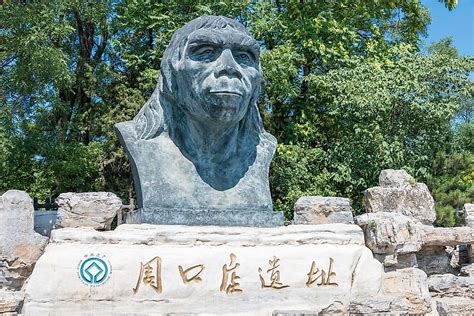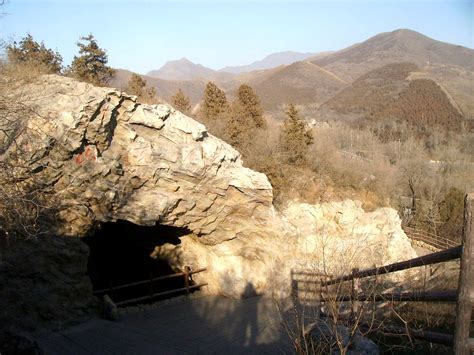excavations at the homo erectus site of zhoukoudian china revealed A cave system in Beijing where Homo erectus pekinensis, or Peking Man, was discovered in 1921. Learn about the excavation history, the fossil remains, the tools and the cultural significance of this UNESCO World Heritage Site. See more AC Digger Hire Surrey offers mini digger hire in and around the county of Surrey. Our Mini Digger range is perfect for smaller building and landscaping projects that have limited access. Hiring our Mini Diggers is a very cost-effective way to get substantial amounts of work done.
0 · zhoukoudian peking man site
1 · zhoukoudian caves
2 · zhoukoudian archaeological site
3 · peking man excavations
4 · homo erectus pekinensis fire
5 · homo erectus pekinensis evidence
6 · hominin remains china
7 · hominin fire in zhoukoudian
Same day delivery for plant hire in Telford. We hire micro diggers, mini diggers and mini dumpers. No account required quickly hire equipment. Phone: 07796 712363; Email: [email protected]; Mo,Tu,We,Th,Fr,Sa all day .
A cave system in Beijing where Homo erectus pekinensis, or Peking Man, was discovered in 1921. Learn about the excavation history, the fossil remains, the tools and the cultural significance of this UNESCO World Heritage Site. See moreZhoukoudian Peking Man Site (周口店北京人遗址), also romanized as Choukoutien, is a cave system in suburban Fangshan District, Beijing. It has yielded many archaeological discoveries, including one of the first . See more
• List of fossil sites (with link directory)• List of hominina (hominid) fossils (with images)• List of World Heritage Sites in China• Peking Man See more
compact power skid steer
DiscoveryHere is primitive man, now all we have to do is find him!— Johan Gunnar Andersson, upon . See morePeking Man SiteLocality 1, also known as Peking Man Site, was the first to be discovered, in 1921, under the direction of local quarry men. The site was . See more• The Peking Man World Heritage Site at Zhoukoudian• Weidenreich, Franz. 1943. The Skull of Sinanthropus pekinensis; A Comparative Study on a Primitive Hominid Skull• Zhoukoudian Tourism Guide See more The site, including some four residential areas, has yielded the largest known collection of fossils of the extinct hominin Homo erectus—altogether some 40 incomplete .
Evidence for “controlled use of fire” by Homo erectus pekinensis at Zhoukoudian Locality 1 was initially discovered in the early 1930s and was widely accepted as the earliest such record in .
zhoukoudian peking man site
Peking Man Site at Zhoukoudian is a Pleistocene hominid site on the North China Plain. This site lies about 42 km south-west of Beijing and is at the juncture of the North China Plain and the .All of Zhoukoudian’s faunal material excavated prior to World War II was lost at the same time as the Homo erectus fossils in 1941. Since then, observations from Zhoukoudian’s prehistoric .

Zhoukoudian, a small township located on the outskirts of present-day Beijing (China), is named for its 27 Pleistocene hominin and/or faunal fossil sites. These include .Zhoukoudian is a site in China where fossils of Homo erectus, also known as Peking Man, were found. Learn about the history, features and significance of these ancient human ancestors .
The 27 localities at Zhoukodian span almost the entire Pleistocene, yielding hominid fossils from Homo erectus to Homo sapiens sapiens.
Both Davidson Black and Chinese paleontologist Yang Zhongjian led excavations at the site, where the first skull of Peking man was recovered by Chinese anthropologist Pei . Discovered in 1918, the Zhoukoudian caves near Beijing have yielded surprises for nearly a century. Layers in the hillside cave system overlooking a river valley have produced .
A cave system in Beijing where Homo erectus pekinensis, or Peking Man, was discovered in 1921. Learn about the excavation history, the fossil remains, the tools and the cultural significance of this UNESCO World Heritage Site.
The site, including some four residential areas, has yielded the largest known collection of fossils of the extinct hominin Homo erectus—altogether some 40 incomplete skeletons, which are commonly known as the Peking man fossils.Evidence for “controlled use of fire” by Homo erectus pekinensis at Zhoukoudian Locality 1 was initially discovered in the early 1930s and was widely accepted as the earliest such record in human evolutionary history for more than half a century. However, since the mid-1980s, this evidence has been questioned.Peking Man Site at Zhoukoudian is a Pleistocene hominid site on the North China Plain. This site lies about 42 km south-west of Beijing and is at the juncture of the North China Plain and the Yanshan Mountains. Adequate water supplies and natural limestone caves in this area provided an optimal survival environment for early humans.
All of Zhoukoudian’s faunal material excavated prior to World War II was lost at the same time as the Homo erectus fossils in 1941. Since then, observations from Zhoukoudian’s prehistoric fauna derive from early detailed monographs and analyses of faunal remains recovered since the . Zhoukoudian, a small township located on the outskirts of present-day Beijing (China), is named for its 27 Pleistocene hominin and/or faunal fossil sites. These include Locality 1 cave where Homo erectus (aka Peking Man) fossils .
conroe skid steer rental
Zhoukoudian is a site in China where fossils of Homo erectus, also known as Peking Man, were found. Learn about the history, features and significance of these ancient human ancestors from the Smithsonian Institution's Human Origins Program. The 27 localities at Zhoukodian span almost the entire Pleistocene, yielding hominid fossils from Homo erectus to Homo sapiens sapiens. Both Davidson Black and Chinese paleontologist Yang Zhongjian led excavations at the site, where the first skull of Peking man was recovered by Chinese anthropologist Pei Wenzhong in 1929. Since 1930, Zhoukoudian has become one of the most important paleoanthropology sites for the study of human evolution in the world. Discovered in 1918, the Zhoukoudian caves near Beijing have yielded surprises for nearly a century. Layers in the hillside cave system overlooking a river valley have produced some 17,000 stone.

A cave system in Beijing where Homo erectus pekinensis, or Peking Man, was discovered in 1921. Learn about the excavation history, the fossil remains, the tools and the cultural significance of this UNESCO World Heritage Site.The site, including some four residential areas, has yielded the largest known collection of fossils of the extinct hominin Homo erectus—altogether some 40 incomplete skeletons, which are commonly known as the Peking man fossils.
zhoukoudian caves
zhoukoudian archaeological site
Evidence for “controlled use of fire” by Homo erectus pekinensis at Zhoukoudian Locality 1 was initially discovered in the early 1930s and was widely accepted as the earliest such record in human evolutionary history for more than half a century. However, since the mid-1980s, this evidence has been questioned.Peking Man Site at Zhoukoudian is a Pleistocene hominid site on the North China Plain. This site lies about 42 km south-west of Beijing and is at the juncture of the North China Plain and the Yanshan Mountains. Adequate water supplies and natural limestone caves in this area provided an optimal survival environment for early humans.All of Zhoukoudian’s faunal material excavated prior to World War II was lost at the same time as the Homo erectus fossils in 1941. Since then, observations from Zhoukoudian’s prehistoric fauna derive from early detailed monographs and analyses of faunal remains recovered since the . Zhoukoudian, a small township located on the outskirts of present-day Beijing (China), is named for its 27 Pleistocene hominin and/or faunal fossil sites. These include Locality 1 cave where Homo erectus (aka Peking Man) fossils .

clark skid steer model 5019
Zhoukoudian is a site in China where fossils of Homo erectus, also known as Peking Man, were found. Learn about the history, features and significance of these ancient human ancestors from the Smithsonian Institution's Human Origins Program. The 27 localities at Zhoukodian span almost the entire Pleistocene, yielding hominid fossils from Homo erectus to Homo sapiens sapiens. Both Davidson Black and Chinese paleontologist Yang Zhongjian led excavations at the site, where the first skull of Peking man was recovered by Chinese anthropologist Pei Wenzhong in 1929. Since 1930, Zhoukoudian has become one of the most important paleoanthropology sites for the study of human evolution in the world.
peking man excavations
Browse a wide selection of new and used KUBOTA Mini (up to 12,000 lbs) Excavators for sale near you at MachineryTrader.com. Top models include KX040-4, U35-4, KX033-4, and U55-5
excavations at the homo erectus site of zhoukoudian china revealed|zhoukoudian archaeological site